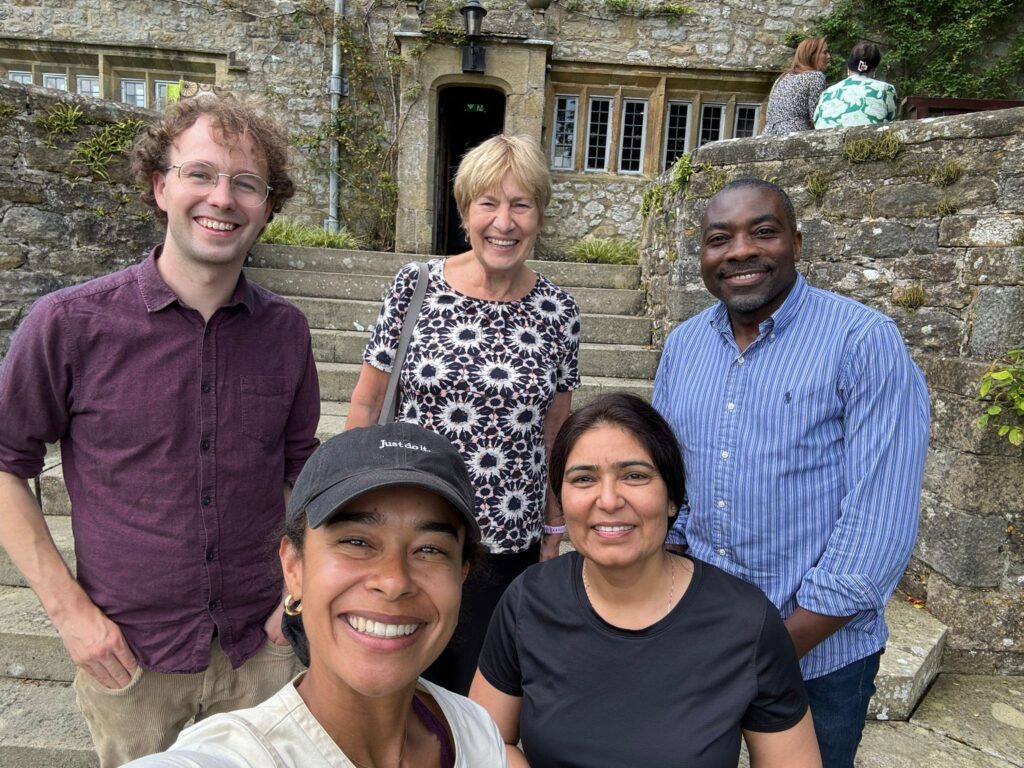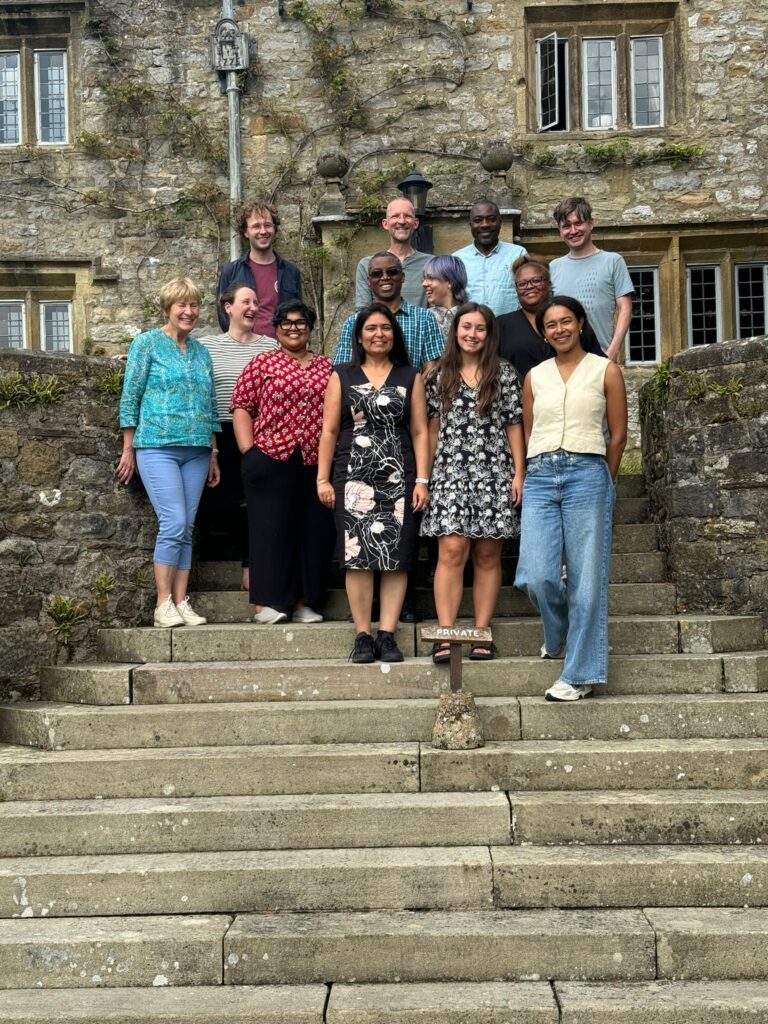Migrant Action Residential and Strategy Day
Last week, we travelled to the beautiful Yorkshire Dales to take part in the Migrant Action Residential and Strategy Day.
Migrant Action is a newly registered charity based in Leeds has been one of Sistren’s key partners since 2023. Their work centres migrant justice and is focused on providing holisitic support to migrants, including safe spaces for information, advice & guidance, advocacy support, access to legal immigration advice, ESOL & employability support, and other forms of practical assistance to ‘vulnerable’ migrants.
Their main activity is individual case-work. However, they are also very much focused on bringing about structural change and systems change for Migrants, using research, campaign action and partnerships to achieve this.
The residential was a moment for Migrant Action to reflect on its 8-year journey, it’s new charitable status and its vision for the future.
We first met Fidelis (Migrant Action) and Roger (RETAS) in 2022 as part of our research project on how lawyers could better support community organisations. Our conversation with Fidelis and Roger was so enlightening and enriching. He spoke clearly of a need for lawyers to situate themselves in the communities they serve and to provide a consistent level of support. His experience of lawyers parachuting into communities and then disappearing again once the initial work was complete, was something that really resonated with us and a dynamic that we’ve been keen to avoid as we develop Sistren.
In February 2023, we travelled to Leeds to meet with Migrant Action and RETAS (Refugee Education Training Advice Service) in-person and deliver a workshop to their affiliated community groups that were interested in registering legal entities to support their work.
Through this workshop, we were able to develop our community lawyering skills and also educate ourselves on the drivers for community organisations wanting to incorporate. It also formed the basis of us preparing the Community Legal Toolkit as we realised that people wanted a resource that took them through step-by-step of how to register their chosen legal form. It was an insightful process for us and informed many of the values we’ve developed in our Community Lawyering Report.
More recently, we have worked with Migrant Action to register as a charity. Having previously been hosted by another organisation, it was time for Migrant Action to take the next step into its own legal entity.
We knew that registration as a charity wouldn’t be straightforward for a migrant-rights organisation. The issue of migrant rights has for a long time been highly politicised and the charity sector is not immune to this. Nevertheless, we pushed ahead with the application, and unsurprisingly were faced with some fairly substantive initial resistance from the Commission in response to our application. They raised several concerns with the application, the main one being that Migrant Action was set up purely for political purposes and therefore not charitable. We successfully defended our position that the activities of Migrant Action were wholly charitable and for the public benefit, and Migrant Action was registered as charity earlier this year.
What have we learnt from this partnership?
- The legal advice is just part of the work. Showing up in-person, standing in solidarity with the cause and educating yourself on the issues, are fundamental to a good partnership.
- There is a real need for lawyers to help community organisations understand charity law requirements and help with framing their work in a way that the Commission understands as charitable.
- We aren’t the experts. Community organisations are and our role is to support them to do the work that matters.
- Migrant justice is so fundamental to broader social justice principles. We’ve seen so evidently that the very notion of migrant is politicised and intertwined with racism, islamophobia and ableism. Protecting and enhancing the rights of migrants ultimately benefits us all.
Relevant Community Lawyering Principles
Principle 1 – We shared lived experiences with, or will develop a shared understanding of, our client’s community contexts.
Principle 2 – We stand in solidarity with our clients’ work
Principle 3 – We understand the systemic barriers that communities face in accessing legal support
Principle 5 – We embrace collaborative and reciprocal approaches to exchanging knowledge.
Principle 8 – We situate our work within wider movements for social justice.




